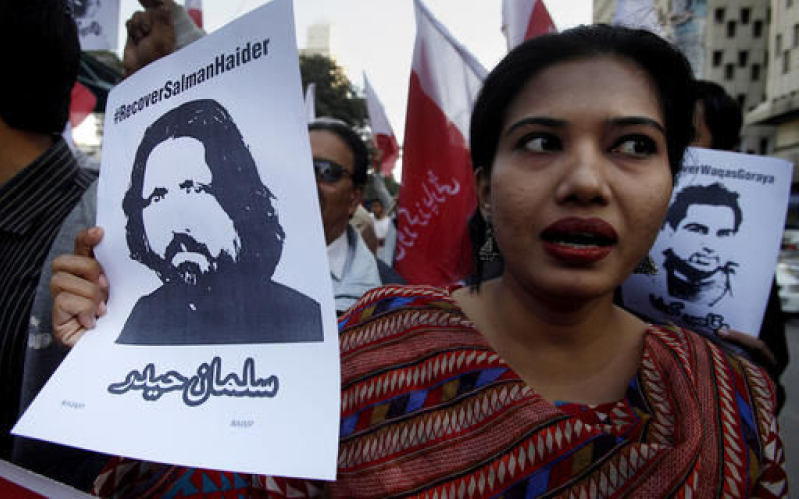
Five human rights and anti-Taliban activists in Pakistan have disappeared under suspicious circumstances within the last week, raising questions about personal security and freedom of expression in the restrictive country.
Reuters reports that Samar Abbas, president of the Civil Progressive Alliance of Pakistan (CPAP), an anti-extremism activist group, went missing from the capital Islamabad on Saturday, according to Talib Raza, who worked with him at the Karachi-based organization.
Abbas is the fifth activist to have disappeared within a week, after the same fate befell a famous university professor and three bloggers last week. Before him, Salman Haider, a well-known poet who teaches at Fatima Jinnah Women's University in Rawalpindi disappeared in Islamabad.
Two days earlier in Lahore, cousins Waqas Goraya and Aasim Saeed went missing, both bloggers. Finally, blogger Ahmed Raza Naseer, who suffers from polio also went missing. All five activists had at varying times expressed secular or anti-government views.
The mysterious disappearances have prompted many to fear the security forces and terrorism are behind the disappearances.
Dozens of activists rallied in the port city of Karachi on Thursday, demanding the five men be accounted for, according to reports. In Washington, State Department spokesman Mark Toner said the U.S. is taking the disappearances "very seriously" and will "continue to monitor the situation in Pakistan."
Activist Mona Aurangzeb told Asia News that "the forced disappearance of members of the intellectual class of Punjab is an alarming trend. The state is giving the impression that no matter who you are: if you raise your voice or create problems, you have to pay the price. "
According to the Human Rights Commission of Pakistan (HRCP), the South Asian country "has never been a particularly safe country for rights activists".
"Many have been killed, injured, abducted and threatened for their work. Unfortunately, these actions have not always come from non-state quarters," HRCP, an independent watchdog, said on Sunday.
Amnesty International said it has "long been concerned about the persistent pattern human rights violations occurring in Pakistan".
"Arbitrary detention, torture, deaths in custody, forced disappearances, and extrajudicial execution are rampant," says the organization. "The government of Pakistan has failed to protect individuals - particularly women, religious minorities and children - from violence and other human rights abuses committed in the home, in the community, and while in legal custody. It has failed to ensure legal redress after violations have occurred. In addition, Pakistan continues to impose the death penalty on persons convicted of crimes."
Al Jazeera notes that Pakistan is also routinely ranked among the world's most dangerous countries for journalists, and reporting critical of the military is considered a major red flag, with journalists at times detained, beaten and even killed.







